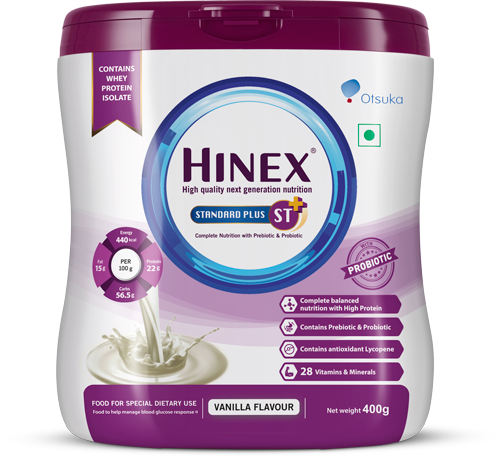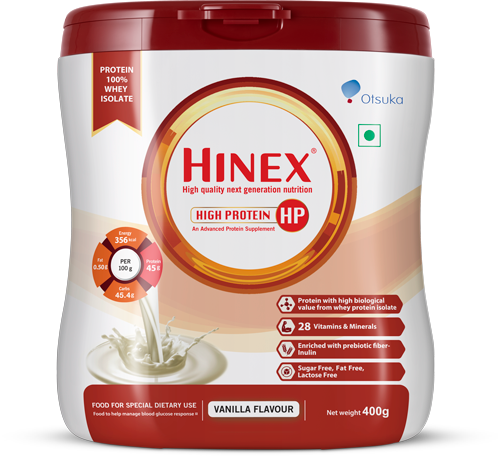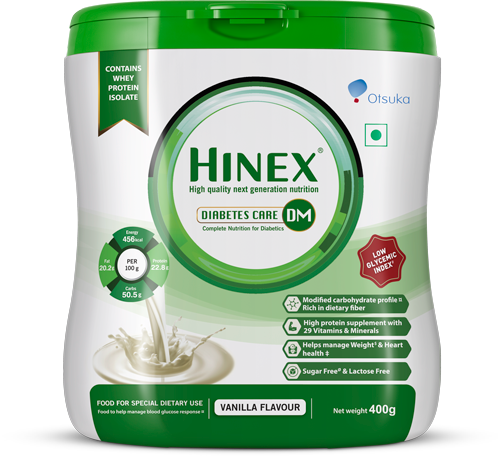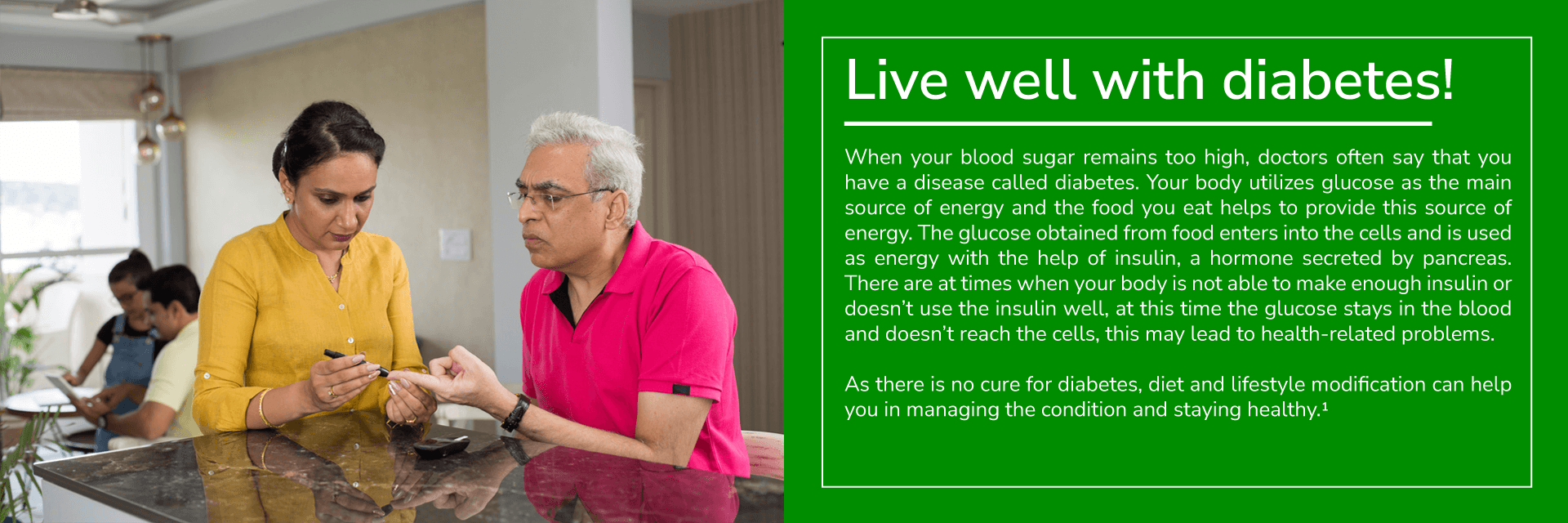
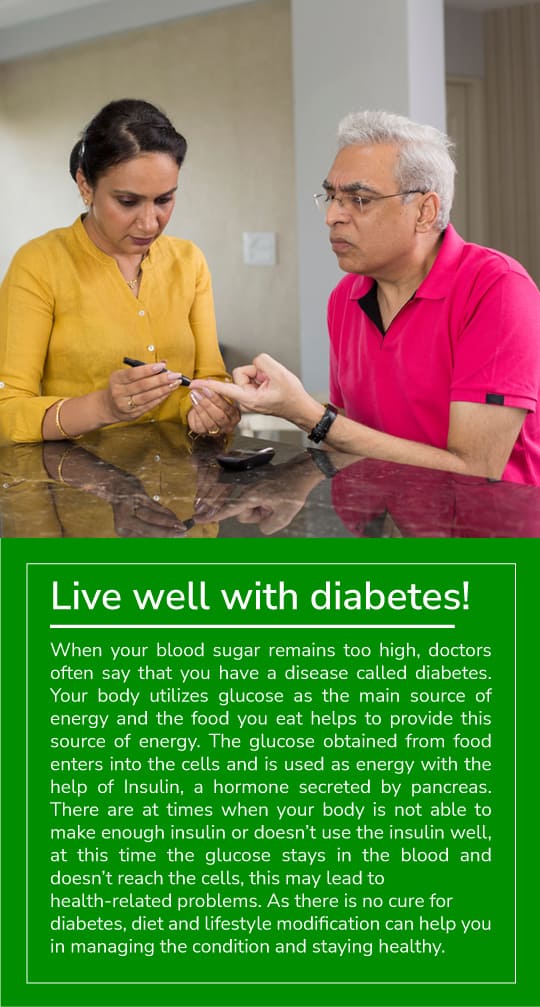
The main steps to be taken are
Diet
The most important tool to manage diabetes is healthy eating. It can make the blood glucose management easier because whatever you eat has direct... effect on your blood glucose level. By making healthy food choices and eating healthy you can bring your blood glucose into a healthy range.
A diet that includes vegetables, whole grains, beans, fruits, healthy fats, and is low in carbohydrates should be included. This diet provides nutrition and fibre and are low in fats and calories. Talk to your doctor or dietician about the best food choices and the appropriate balance of food types.
Healthy eating can help to reduce weight which can further improve blood glucose levels and may reduce complications associated with diabetes.
Change in lifestyle
Exercising for around 30 minutes at least 5 days a week can help you maintain healthy weight and also make your body more sensitive to insulin. Physical activities... like walking and swimming can help. Kindly consult your doctor before starting any exercise regimen.
Medications
It is important that you take your medications exactly as prescribed by your doctor. Medications along with diet and exercise can help in controlling blood sugar levels... and in managing diabetes.
Avoid smoking
Quit smoking as it can increase the risk of having diabetes related complications.
Monitor
Regularly monitor your blood glucose and blood pressure levels. This can help you in effective management of diabetes.1
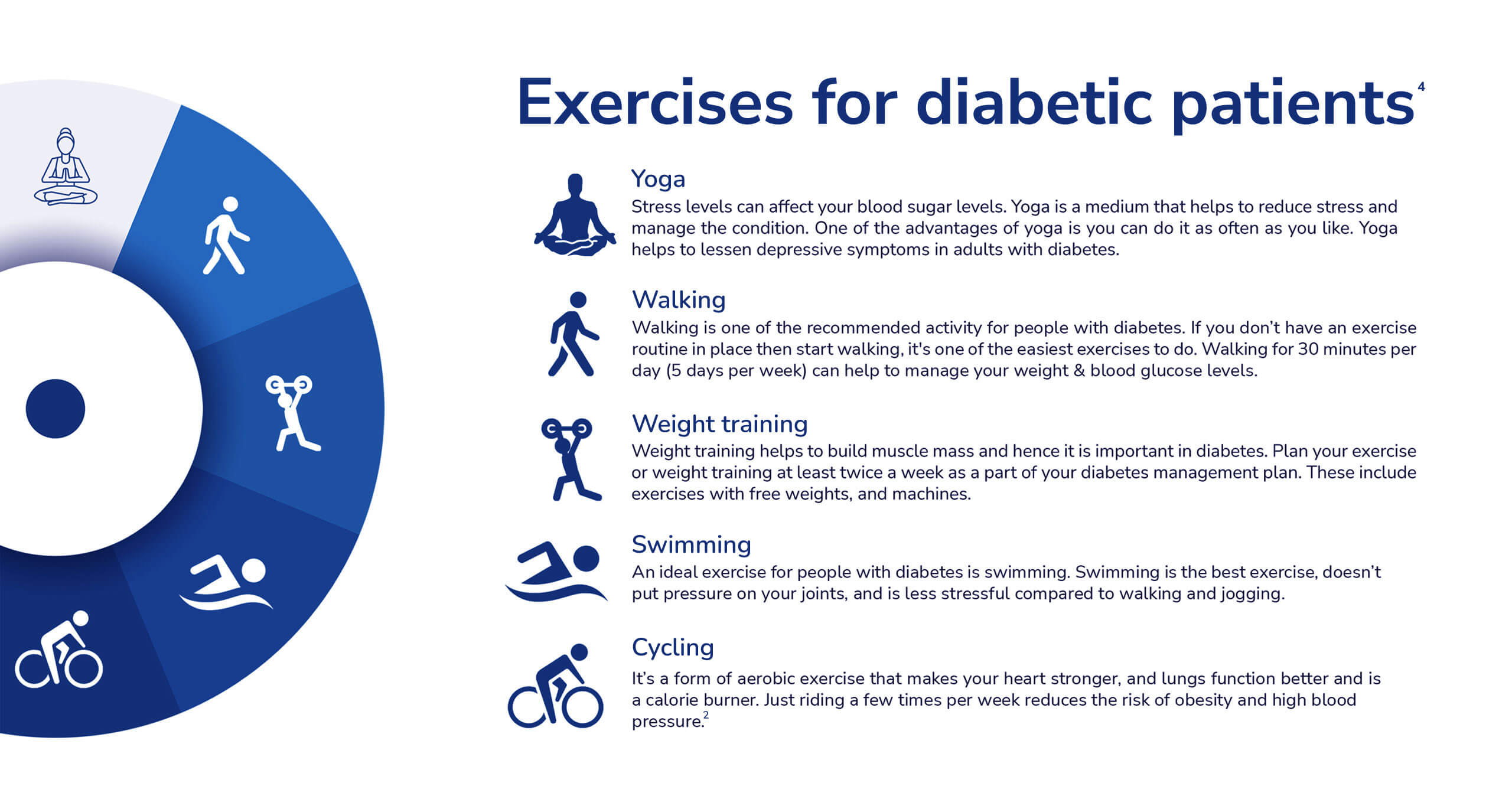
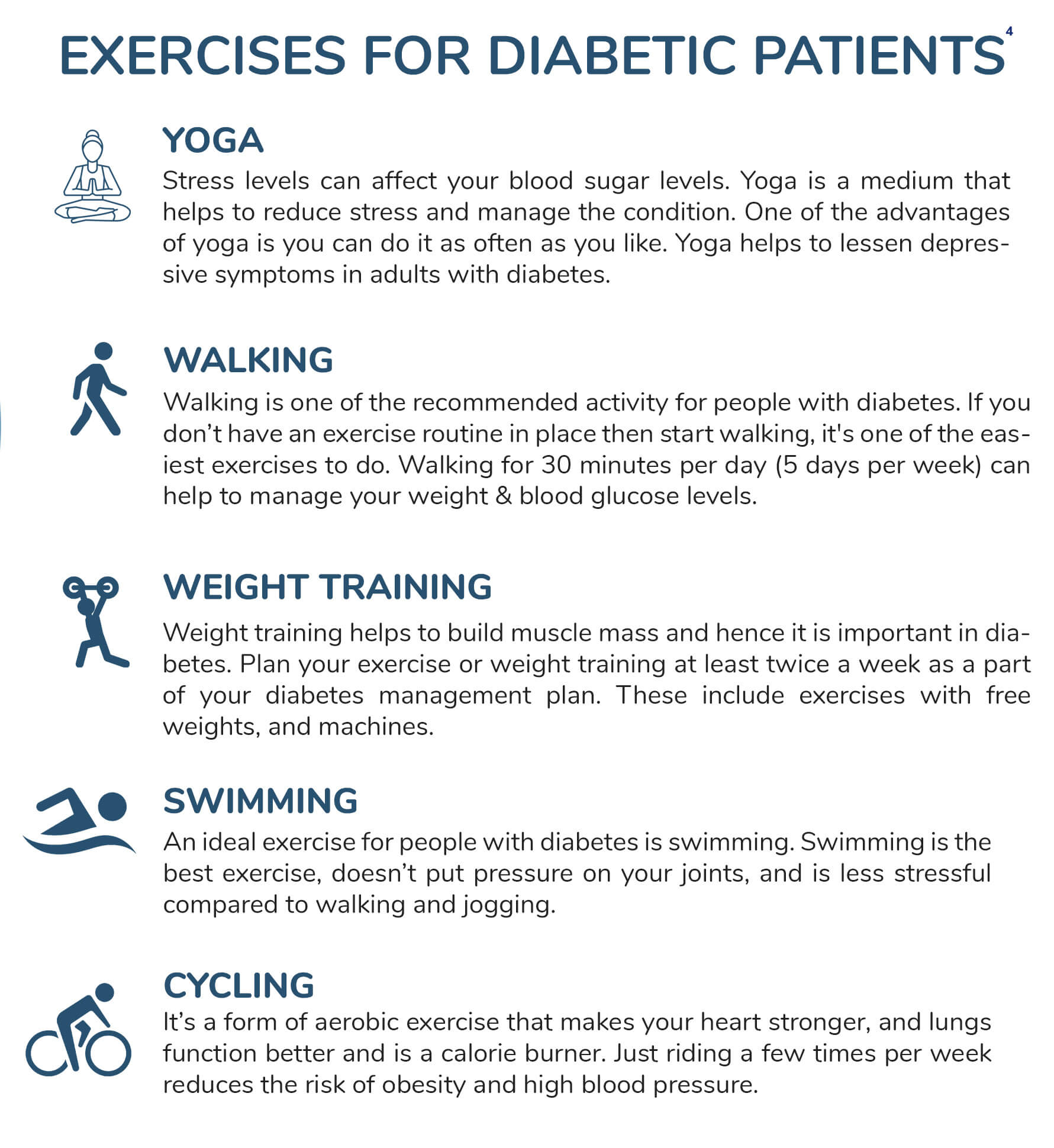
5 tips for healthy eating2,3
Choosing healthier carbohydrates
Its important to know which food contains carbohydrates as it affects blood sugar levels.... Healthy carbohydrates should be chosen and you should be aware of portion sizes. Healthy sources of carbohydrates are whole grains like brown rice, whole oats, fruits, vegetables, pulses like beans, and lentils, dairies like unsweetened yogurt, milk.
Eating less salt
Most people consume too much salt and not enough potassium this may lead to high blood... pressure. Intake of salt can be reduced by: limiting the use of salt during cooking and preparing foods; not having salt or high-sodium sauces on the table; limiting the consumption of salty snacks; and choosing products with lower sodium content.
Cutting down on added sugar
Limit the consumption of added sugars as it can increase your blood glucose levels.... Avoid consumption of sugary snacks, candies and sugar-sweetened beverages (i.e. all types of beverages containing free sugars – these include carbonated or non‐carbonated soft drinks, canned fruit or vegetable juices and drinks, liquid and powder concentrates, flavoured water, energy and sports drinks, ready‐to‐drink tea, ready‐to‐drink coffee and flavoured milk drinks).
Eating more fruits and vegetables
It is always good to eat more fruits and vegetables. By eating vegetables and... fruits you can get vitamins, minerals and fibres that help to keep your body healthy.
Choosing healthier fats
Fats are important in your diet because it gives you energy. Avocados, olive oil,... fish are some sources of healthy fats. Avoid intake of saturated fats and trans-fats as they can increase your blood cholesterol levels and thereby can increase the risk of heart problems. These are mainly found in animal products and prepared food like ghee, butter, biscuits, cake etc.
Six steps that can be helpful in changing thoughts about diabetes5
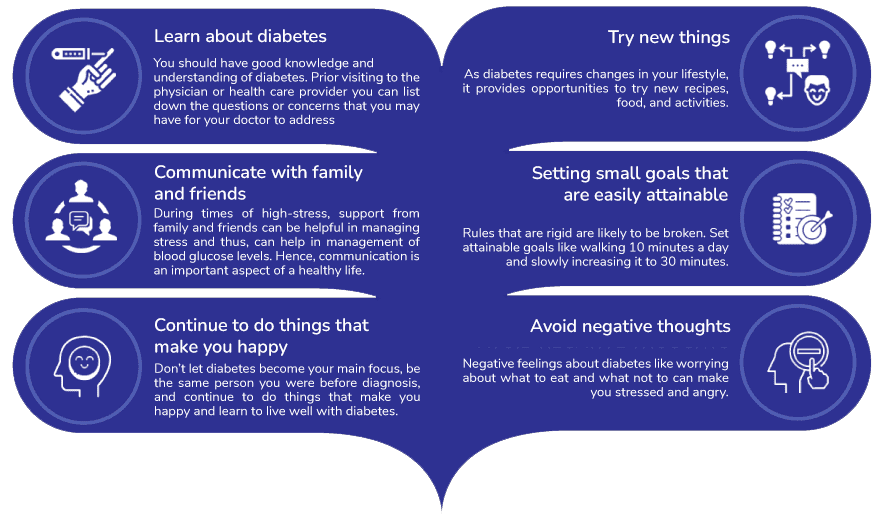
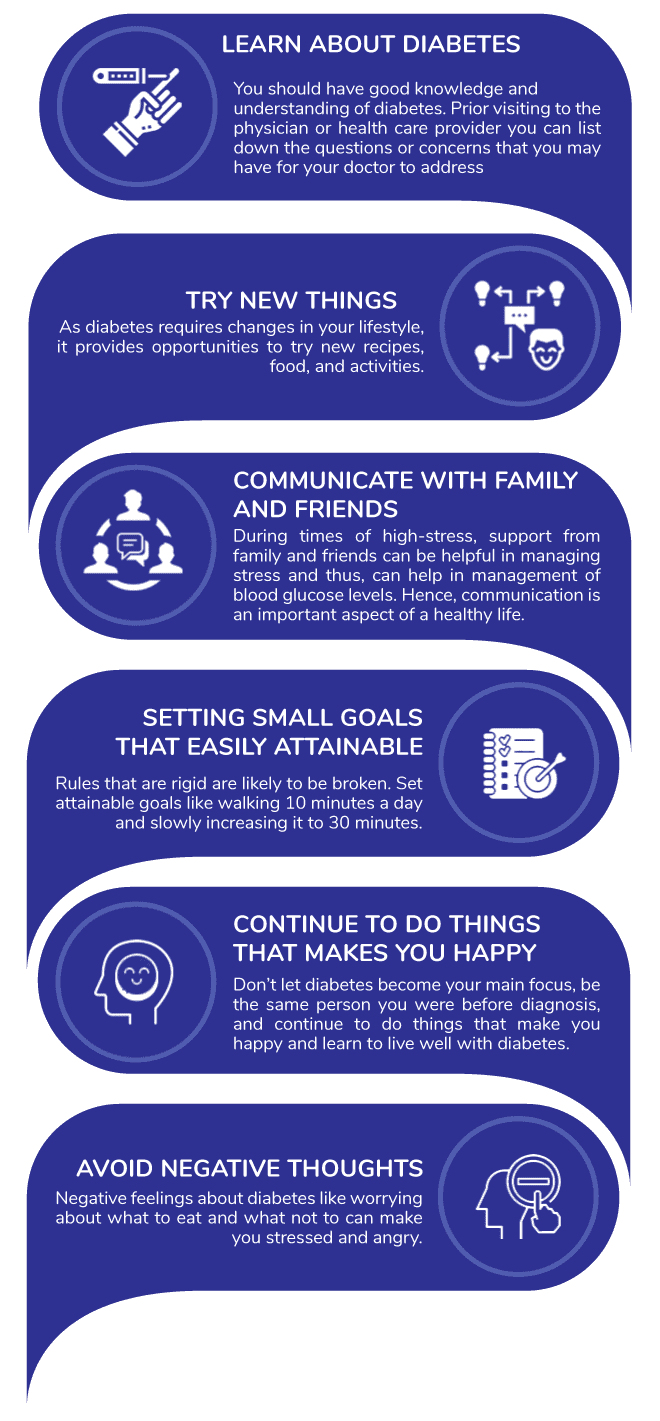

Takeaway
- To control blood glucose levels, diet and exercise are your best friends.
- Staying hydrated, eating fibre, whole grains and exercising helps to maintain blood glucose levels.
- Always consult a doctor and/or a registered dietician/nutritionist before making any changes in your diet.
References
1. Diabetes: An Overview. Available online at https://my.clevelandclinic.org/health/diseases/7104-diabetes-mellitus-an-overview. Accessed on 11th Nov 2022
2. 10 tips for healthy eating with diabetes. Available online at https://www.diabetes.org.uk/guide-to-diabetes/enjoy-food/eating-with-diabetes/10-ways-to-eat-well-with-diabetes. Accessed on 20th Oct 2022
3. Healthy diet. Available online at https://www.who.int/news-room/fact-sheets/detail/healthy-diet Accessed on 14th Nov 2022
4. 6 Great exercises for people with diabetes. Available online at https://www.everydayhealth.com/type-2-diabetes/living-with/great-exercises-for-people-with-diabetes/. Accessed on 20th Oct 2022
5. Six steps to living well with diabetes. Available online at https://www.pinerest.org/newsroom/articles/diabetes-living-well-blog/. Accessed on 20th Oct 2022
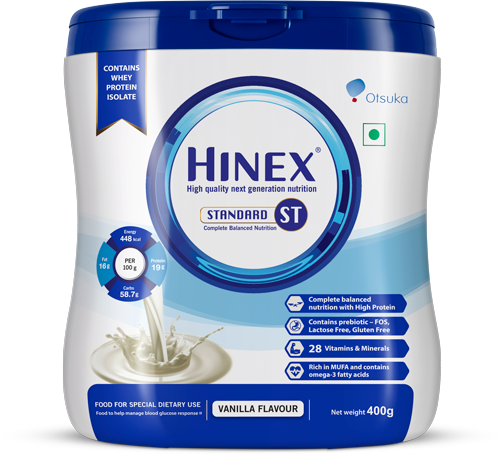
 Buy Now
Buy Now Buy Now
Buy Now